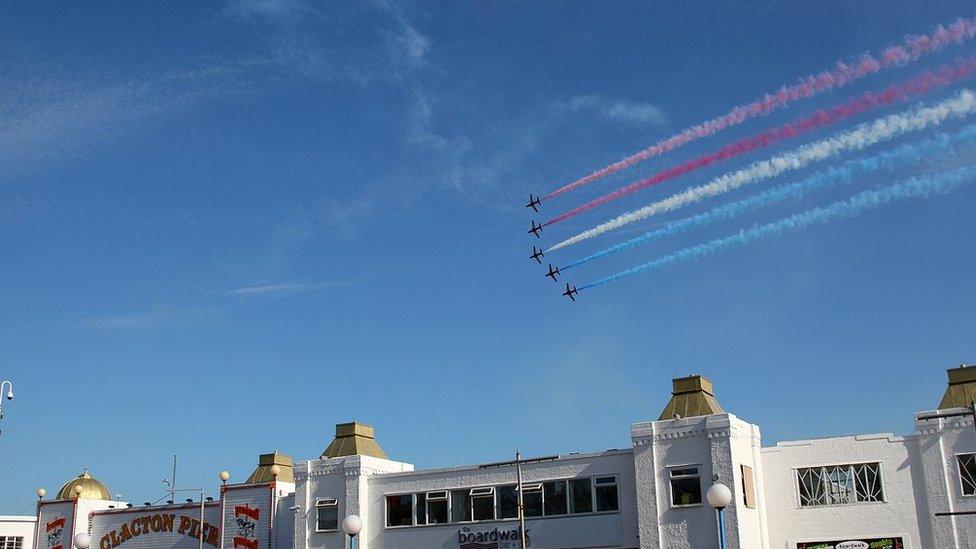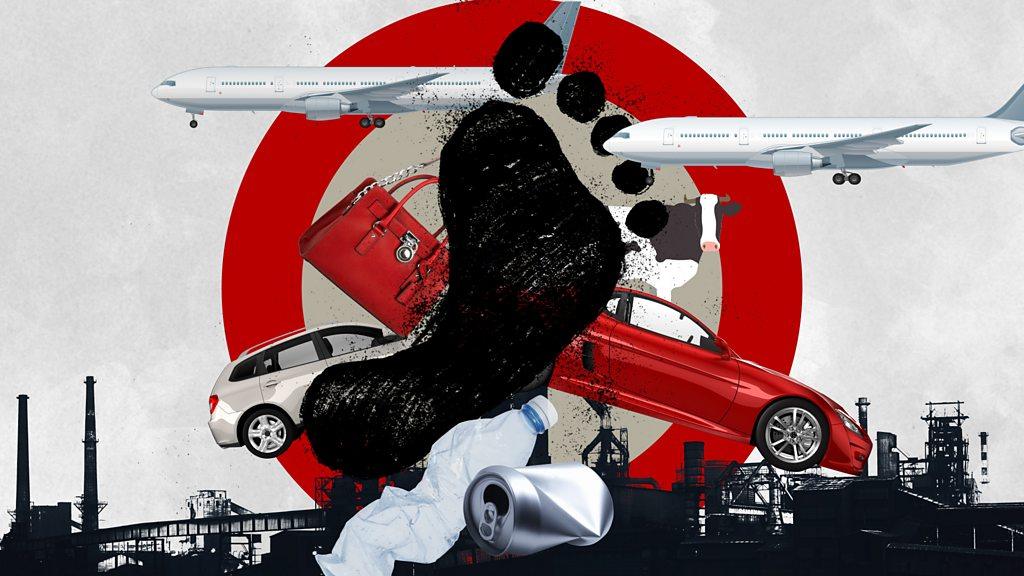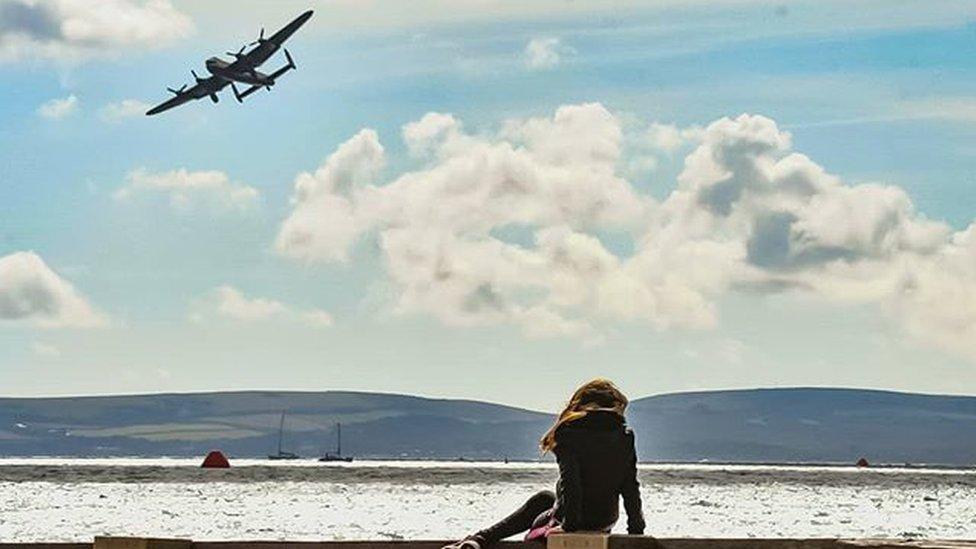Clacton Airshow looks to reduce carbon footprint
- Published

The Red Arrows were popular with visitors to the Clacton Airshow
An airshow which usually burns through more than 100,000 litres of jet fuel for entertainment is looking at ways to reduce its impact on the environment.
Tendring District Council is to research schemes to offset the carbon footprint of the Clacton Airshow, which it said generated 275 tonnes of carbon emissions.
Possible schemes include planting trees, a strategy adopted by the Bournemouth Air Festival.
The next show is due in August 2022.
BBC Reality Check explains how to cut your carbon footprint
The Clacton Airshow attracts about 250,000 people over two days and brings in about £5m to the local economy.
The council has pledged to follow up recommendations from its resources and services overview and scrutiny committee on how the air show can improve its green credentials, the Local Democracy Reporting Service said.
These include options taken by the Bournemouth Air Festival "whereby trees were planted for each tonne of carbon used".
Red Arrows help celebrate Clacton-on-Sea's 150th anniversary
In September 2019, the Bournemouth event said the planes also generated 275 tonnes of carbon emissions which were offset by planting 275 trees in the area, and by a £3,500 contribution to a project to protect the Amazon rainforest.
Councillor Alex Porterm, portfolio holder for leisure and tourism, suggested task and finish groups be set up to "look in detail at how some of the [environmental] suggestions could be delivered in practice".
"I look forward to seeing the results of the in-depth scrutiny by the committee in these areas and welcome further thorough scrutiny that results in an improved strategy," he said.

Find BBC News: East of England on Facebook, external, Instagram, external and Twitter, external. If you have a story suggestion email eastofenglandnews@bbc.co.uk
Related topics
- Published22 April 2021

- Published15 June 2021

- Published1 September 2019
